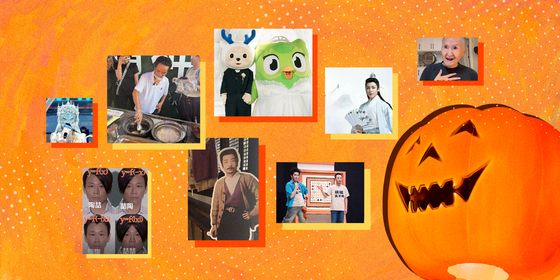Handy phrases for online arguments
Yeah, we know. You’re supposed to be civil in online discussions.
But let’s be honest, who hasn’t lost it and wanted to unload on someone online? All but the saintliest of us have occasionally lost control and mocked their opponent. With so much time and effort spend on this behavior online, it’s handy to have the latest appropriate slang at your disposal.
The most popular word these days is a one-character word, 怼. Originally, this character was pronounced as duì, meaning hatred and resentment, and was expressed in the word 怨怼. Recently however, it became a buzzword, meaning to criticize, scold, blame, mock, ridicule, or verbally attack. But when it’s used in this way, its tone should be changed into duǐ. The word can serve as either a transitive verb, like “怼人(duǐrén, verbally attack people)”or an intransitive verb, in 怼回去(duǐhuíqu, respond with a verbal attack).
Trump is an excellent example of this and is quite possibly the guy who popularized the term on the Chinese internet, because he always seems to 怼 others. When Trump blasted BuzzFeed and CNN last week, accusing them of cooking up some false news, some Chinese media reported the incident with the headline怼—川普怒怼美国媒体 (Trump angrily attacks US media verbally).
Trump seems particularly attached to this word. If you search for the key words “Trump” and “怼”, you can see he could be both the subject and the object of a sentence with the verb 怼. For example:
Tài hǎoxiào le, chuānpǔ gānggāng duǐwán méitǐ, Méilìěr zài jīnqiújiǎng shang yòu duǐ le chuānpǔ.
太好笑了, 川普刚刚怼完媒体,梅丽尔在金球奖上又怼了川普。
It’s so funny that just after Trump blasted the media, Meryl Streep attacked Trump at the Golden Globe Award ceremony.
Besides Trump, there are also some celebrities known as masters of 怼人. For many pop stars, “怼人” has already become an interesting label that cam make them remembered. Actress Zhao Liying is an example. Even by accident, she often says something that makes others embarrassed. For example, she attended a reality show together with several other female pop stars and once when they had a dinner in a fancy place with everyone well-dressed, she said to Xie Na, a popular hostress of a Hunan TV station, “Thanks for your company, because I feel that I never look good in such outfits.”
Similar things happened on many occasions and people gradually realized that Zhao didn’t mean to upset others, instead, she was just not good at talking. Then, when the character 怼 went viral online, people found it was a perfect word to describe Zhao’s talking style. Surprisingly, just after her style of speech was defined as 怼人 rather than “impolite” or “low-EQ”, criticism against her subsided. More and more people felt that her screw-ups were endearing rather than malevolent.
For the more refined troll, the phrase “毒舌(dúshé), literally meaning “poison tongue”, serves as a handy adjective. In fact, there are a lot of phrases regarding verbal skills that use parts of the mouth. If a person has the gift of the gab, we can say he is 伶牙俐齿(língyálìchǐ, has smart teeth); And a person who always talks in a tart and offensive way can be called “牙尖嘴利 (yájiānzuǐlì, with sharp teeth and a pointed mouth).” When it comes to your tongue, you can describe someone as 毒舌 if he or she always has critical opinions and loves to give acerbic comments with a sarcastic tone.
TWOC has introduced the slang term 吐槽 (tǔcáo, literally meaning ‘spit slot’) before, which refers to “joke at something that you dislike”. A person who likes 吐槽, is a poison-tongued person.
To be poison-tongued is more like a kind of personality, rather than to attack others out of malice. But the verb 喷(pēn), literally meaning spout, has nothing to do with humor or eloquence. It means “verbally attack others unreasonably with really rude words.”
Trolling at its purest, basically. No rhyme or reason, just rage and attention.
Here are some examples:
Hěnduō shībàizhě shēnghuó zhōng yíshìwúchéng, què zhěngtiān zài wǎngshang luànpēn.
很多失败者生活中一事无成,却整天在网上乱喷。
Many losers have achieved nothing in real life but spout off all day on the internet.
Zuòwéi gōngzhòng rénwù, zài gōnggòng chǎngsuǒ hé rén duì pēn zhēnde tài chǔn le.
作为公众人物, 在公共场所和人对喷真的太蠢了。
As a public figure, it’s really stupid for him to spout against others in public.
When the affix 子(zi) is added after the word 喷, we have a noun 喷子(pēnzi), referring to those who spout off online all the time. You can say: “It’s meaningless to argue with him. He is purely a 喷子.”
Okay, let’s come to the last term—炮轰(pàohōng),meaning “bombard”, which usually appears in news headlines. It’s easy to understand this metaphor. But the point is that only a rebuke from influential people deserves such a strong word. You can say Donald Trump bombarded the media; but can’t say “my mom bombarded me for not cleaning my bedroom.” In this case, you can come back to the word 怼, and it would be “我因为没打扫房间被妈妈怼了(Wǒ yīnwèi méi dǎsǎo fángjiān bèi māma duǐ le, I was scolded by my mom for not cleaning my bedroom).”
Cover Image from dyhjw.com












